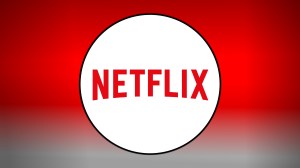Not long after our interview with The John Locke Foundation’s Jon Sanders, who blasted the North Carolina film incentives program in a report for the organization as “good, old-fashioned corporate welfare,” ComicBook.com caught up with Aaron Syrett, Director of the North Carolina Film Office, to discuss their reaction to the Locke report and to see what they had to say in response to some of the report’s assertions about the film industry’s economic footprint in North Carolina.Not surprisingly, Sanders and Syrett were not in total agreement on most issues.The first thing’s first, I suppose–the John Locke Foundation report claims that by leaving the incentives on the table instead of killing them in favor of an across-the-board tax cut, North Carolina is giving the film industry a kind of “favored” status. What is it that status is meant to support?Our film incentives that we offer are among the smartest film incentive packages in the nation. We’re able to compete with every single state, without the highest percentage rate. Just by virtue of our industry that we’ve built over the past 25 years, we’re able to offer a lower incentive and still compete for the big projects. Without the motion picture incentive, the industry would cease to exist in North Carolina.In 2009 or 2010, we were on the verge of losing our entire market share. Back into the late ’90s, early 2000s when first Canada’s incentives started, and then Louisiana got into it, New Mexico got started–we were losing our market share.Until about 2009, 2010 before we finally really retrofitted the incentive to work well, our marketshare was diminishing–almost gone. And that’s what would happen again without it.
Iron Man 3 And The Economic Value Of Comic Book Fans
Not long after our interview with The John Locke Foundation’s Jon Sanders, who blasted the North […]











